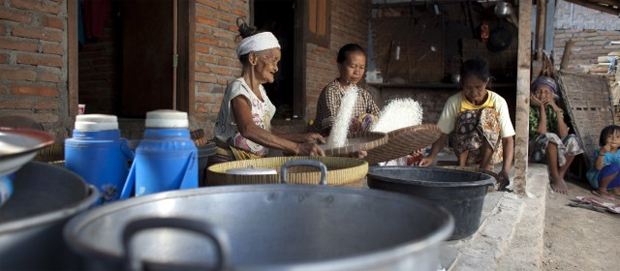With China's transition from a planned economy to a market-oriented economy, social responsibility has become an essential element of Chinese corporate strategy.
As an evolutionary tool of soft power, CSR requires companies to address social and environmental considerations alongside the drive for profit in businesses. Given the deficiency of laws relevant to CSR in China, it seems, however, a herculean task for companies there to embrace the concept. CSR principles are based on a commitment to the work safety and welfare of their employees, in addition to a commitment to public good. Unfortunately, Chinese companies have fared poorly at both levels, focusing solely on profit maximisation.
Chinese investment in Myanmar provides an insight into its commitment to CSR. China’s role in Myanmar is decisive as it is one of the largest trading partners and biggest sources of foreign investment. There has been an enormous growth in China’s influence in Myanmar, significantly, after economic sanctions were imposed by the West in 1989. Due to growing Sino-Myanmarese energy ties, China is investing heavily in developing ports in Myanmar to gain greater access to the Indian Ocean. With sanctions long blocking Western investments, China has been the biggest investor in Myanmar across infrastructure, mining projects, hydropower dams and twin oil-and-gas pipelines that help meet southern China’s growing energy needs.
Facing setbacks
Though China’s total investment tops $20 billion, many of its big projects have suffered in recent years. The $3.6-billion Myitsone Dam project was suspended in September 2011 and so far, there has been little hope for restarting construction. The Letpadaung copper mine project, in which a Chinese state-owned enterprise invested about $1.065 billion, was forced to stop construction by local protesters. Another target of some anti-Chinese activists is the China-Myanmar oil-and-gas pipeline.
Much of this opposition to Chinese companies has been centred on their complete disregard for and violation of environmental regulations, as well as local customs and traditions. As a result of these setbacks, the companies have agreed to conditions such as social and environmental impact assessment of their projects and occupational health hazards related to ongoing projects.
China is trying hard to improve its image in a changing Myanmar. In order to retain their stake and maintain a foothold in Myanmar, the Chinese companies have sought to publicly embrace corporate social responsibility practices. For instance, Chinese pipeline companies will be spending millions of dollars on schools and health centres to benefit the local community. According to the People’s Daily, the entity undertaking the natural gas pipeline will build around 45 schools, 24 clinics and contribute millions of dollars to be spent on Myanmar’s national power grid.
In the case of the Letpadaung project, the Chinese company in has amended the copper mine deal and is trying to engage the local community.
They have also promised to contribute generously toward new schools, libraries and upgraded roads around the mine. The amendment requires two per cent of net profits to be allotted for CSR activities with a focus on immediate communities.
The Chinese are also looking into safety regulations and environmental protection guidelines. Written into the contract, is an environment protection clause with Wanbao, the company, paying two million U.S. dollars per annum throughout the commercial production period of the project into a dedicated account to ensure international standards of environmental protection. At the same time, efforts are being made to ensure compensation for land of local farmers and their relocation.
Reaching out
Furthermore, to assess and control the anti-Chinese sentiments in Myanmar, China is reaching out to the people through its Embassy’s Facebook page. China and Myanmar have agreed recently to enhance their technological exchange and cooperation. This assistance is meant to contribute not only to raising the level of Myanmar’s technological capability and socio-economic development but also to enhancement of friendship between scientists and peoples of the two countries.
Air and water pollution; need for conservation of bio-diversity; and land and forest rights are some of the issues that demand immediate attention and response before any further long-term investment by “Big Brother” in Myanmar. China is increasingly conscious that respect for local customs, traditions and national laws could help bridge the trust deficit and cement people-to-people contact, which according to Ma Mingqiang, Secretary-General of ASEAN-China Centre, is the “weakest link” between the two countries.
|
















